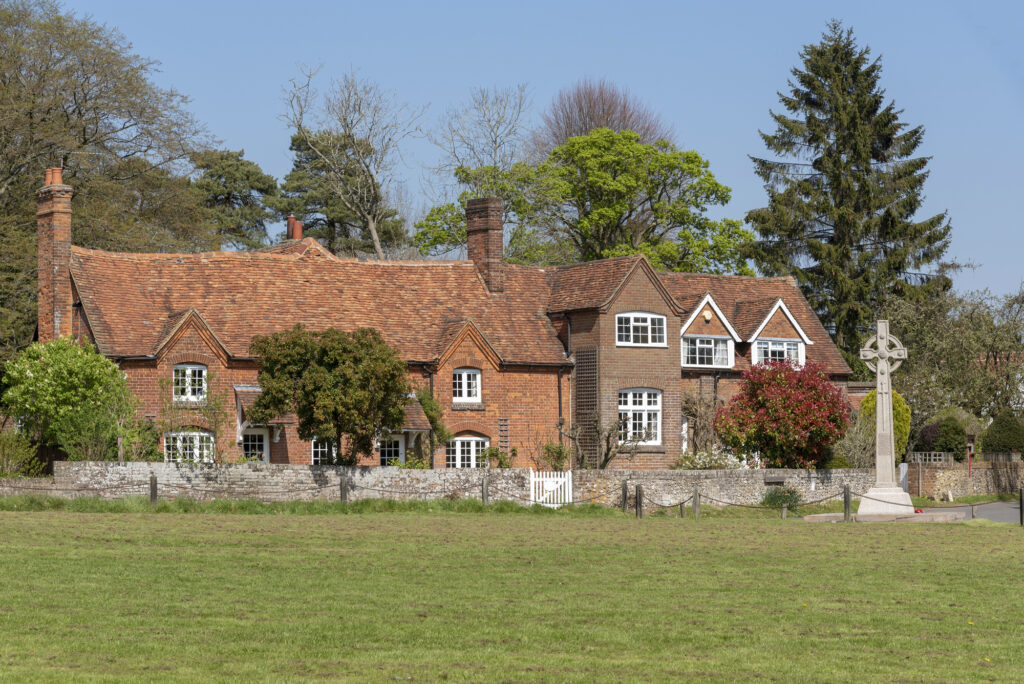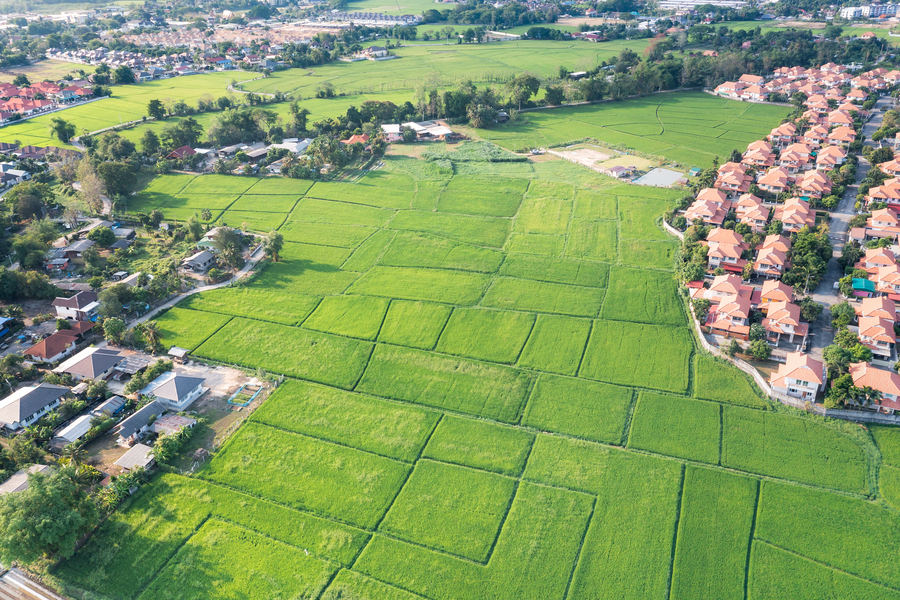Last Updated on October 24, 2023 by Heather McDowell
Join us by reading this piece where we continue our exploration of rural properties with a little help from our friend and local real estate expert Adam DeGroote.
In this article, we’ll share with you the benefits of our research, knowledge, and expertise, coupled with Mr. DeGroote’s wisdom to give you, our loyal reader, the scoop on buying a rural property.
Without further ado and not meant to replace the advice of a local REALTOR ®, here are some important and often overlooked factors when considering replacing the concrete jungle with the greener pastures of a small-town community.
Wells and Water Quality
Well water is typically pure and fine to use for cleaning, bathing, and drinking. However, if the well is not maintained or set up correctly, there is always a chance of pollution or other corruption that can turn into unsafe drinking water.
Wells should be properly maintained and inspected for impurities at least three times a year. A well needs to have its caps, cracks, pipes and pumps safe and sealed in order to meet base-line operation guidelines.
In addition to a physical inspection of the well, the water quality should be tested a minimum of three times per year.
Additionally, if there’s a change in the taste, colour, or transparency of the water. More information on ensuring the safety of your drinking water can be found with Public Health Ontario or your local public health organization.
Septic System
A septic system may be your only option for waste and water removal in rural neighbourhoods and caring for them requires a mindful eye to avoid costly repairs or environmental damage.
There are different types of septic systems, so it’s important to ask what type it is and where it is on the property.
When purchasing property with a septic, ask when the last time it was pumped, and if it hasn’t been done recently, it is something that a buyer should ask for in the Agreement of Purchase and Sale (APS) prior to closing. Whether historical or being done immediately in advance of closing, the buyer should request a copy of the receipt of pumping which often speaks to a visual inspection done to the unit.
Permits, Zoning, and Building Regulations
Before venturing to build, amend or expand consider clarifying property lines. In our previous article, entitled , we noted the importance of property lines.
Since farms and other rural properties often were built long before their community was established and passed from grandfather to father to son to grandson, the delineation of where one property ends and the next begins can be unclear.
Because the borderline separating one property from the next was often established long ago by either eyeballing it or property folklore or a blend of the two, it can become blurred. If the property lines are in question at all, it may be worth getting a professional survey done.
Depending on the bylaws in your area, construction- in whole or in part, or keeping certain animals/raising certain livestock may be prohibited.
Before breaking ground or bringing heavy construction machinery onto the property, ensure an understanding of the required permits from the municipality or county, or in some cases both.
If you wish to make big adjustments or upgrades, this procedure may end up being a costly one both in terms of time and money. To fully grasp the degree of autonomy you will have after you own the property, finding out who your point of contact is would be a smart place to start before making the purchase.
We leaned on Adam DeGroote for his vast experience with sales of rural properties spanning Brant, Norfolk, and Oxford County. Here’s what he had to say about property lines and working with local or government,
“When dealing with questions about property lines, it is a huge advantage to have a local Realtor ® who is immersed in the agricultural scene of the area you are looking to buy. A great Ag Realtor ® will know who each farmer is, where their lot lines are (without looking them up), and what was grown over the past decades. If push comes to shove, that agent will know who to speak with at the County or Township to exactly identify the info you need and who to contact if even further information or exploring is yet required. You shouldn’t be left with unanswered questions when buying a property, especially on a large acreage with lots of moving parts.”
Municipal Services
It is usual to charge extra fees to cover the cost of maintaining neighbouring roads and property to guarantee the neighborhood’s safety and accessibility. Paying for the removal of snow in the winter or gravel and pavement in the summer ensures that residents’ access to the roads and any emergency vehicles that might need to enter the area are both safe.
Understanding how garbage collection operates in the neighbourhood is essential since those services are supplied differently in rural communities than they are in the city. Costs, storage, and frequency are all part of this.
Coverage and Telecommunications

High-speed internet is now available in rural locations, however, some providers may have restricted coverage, leading to patchy reception or bad connections. To ensure constant, dependable phone connectivity, some rural people prefer to have a landline.
Also, with the post-pandemic increase in the opportunities to work from home, reliable internet has become a front-burner concern for employees exploring rural property ownership.
Power Outage Preparation
If a power line fails, rural communities are sometimes among the last to receive service. You might have to endure days or even weeks without power in some circumstances.
A backup power generator is essential if you choose to relocate to an area where that is a possibility. Even then, you won’t be able to utilise tap water if your well has an electric pump, so make sure you have sufficient water and other supplies on hand.
Transportation
Is the home located on a closed street?
If so, you may have to pay your neighbours a portion of the cost of paving, upkeep, and ploughing, which may add up to thousands of dollars a year.
Having restricted access or no access to public transportation comes with living outside of the city limits. Even while you might not truly rely on the accessibility of public transportation, you will have to travel farther to get to jobs, schools, hospitals, or social gatherings.
Also, rural routes can be closed frequently due to weather conditions. For more on the subject of getting around on rural routes, we turned once again to trusted real estate broker Adam DeGroote.
“Dealing with roads in the countryside that are not as travelled does come with some disadvantages and some planning ahead. When the weather gets rough, the less travelled roads are often not the first to get attention from the plow, so a Buyer does need to understand this and have plans in place for when the weather gets tricky. Often buyers will have a vehicle that can make it through reasonable winter challenges and they will likely have their own plow or snowblower. Having a stockpile of heating fuel, groceries, and household supplies is advised when the forecast does not look promising. The quiet country roads are really nice most of the year but you do have some days when it would be nice to be the first one the plow hits!”
Finance For An Acre
Financing an acreage is comparable to purchasing a home in the city if you merely intend to live there and not raise livestock or grow crops. But when it comes to crops and cattle, there are different laws and regulations, and it’s critical to be aware of them.
Mortgage lenders never want to foreclose on a property, but this is particularly true of acreage as it may take considerably longer to sell than an urban home, depending on location.
An acreage priced under $1 million can be purchased with as little as 5% down if you apply for a CMHC-insured credit plan, though lenders always want to see more, especially in rural areas. If you choose to take this option, be aware that there are a lot of prerequisites, including a residence with an active economy and an appraisal. Due diligence and working with an expert are key here.
Only the land, house, and garage will be covered by a mortgage if one is applied for. Any outbuildings on the property are not covered by it. If the acreage has any valuable outbuildings, their worth will be removed from the property’s overall value, and the buyer will be responsible for making up the shortfall. As a result, the mortgage is typically smaller and the down payment is higher.
If there are no outbuildings on the land but you want to create one, make sure you follow all local ordinances by checking the municipality’s requirements.

In Conclusion,
There are many things to consider in the pursuit of purchasing rural property, making the process seem hugely challenging, particularly for those who never lived outside of a big city.
In fact, following the mass post-COVID exodus from major city centres for the greener pasture of rural communities, there’s been a trend of those folks returning to their concrete jungles. Those returning often complain of feeling unprepared for what was required in their new locale.
However, it begs the question that if those individuals had received adequate local help, whether it from a REALTOR ®, home improvement professional, or a home inspector, and combined that with thorough research, whether their buying of a rural property would have been a total success and a new adventure to call home.
To leverage true agricultural property expertise or to connect or to connect with Adam DeGroote directly, feel free to email him at adam@adamdegroote.com and enjoy the comfort of expert rural knowledgeability.
Heather McDowell is a mother and a REALTOR®. Heather has spent most of her real estate career selling residential real estate, and its leasing and has dealt with the additional complexities of the cottage, timeshare and rural properties, and condominiums. She has dabbled in new construction and is expanding her portfolio to include commercial sales and leasing. Heather is also a dedicated volunteer for both the local women’s shelter and a national hospice organization and is an emerging playwright.
Heather describes her focus as diversifying real estate content that not only addresses national matters but explores those issues unique to each province and territory.
You can contact Heather at heather@crewmedia.ca or find her on socials at:
Facebook – https://www.facebook.com/thestoreytellingcompany/
LinkedIn – www.linkedin.com/in/heather-mcdowell-98134118b
Instagram – https://www.instagram.com/hmcdowellrealty/








